A child star turned dog breeder and trainer, Carl “Alfalfa” Switzer was fatally shot in 1959 at age 31 — over a dispute concerning a lost dog.
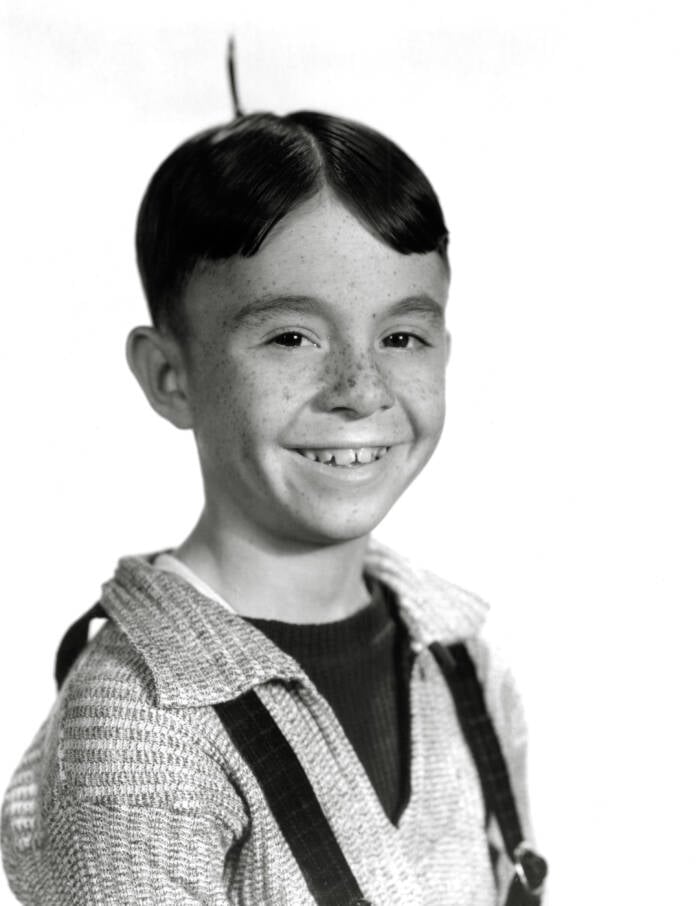
PictureLux / The Hollywood Archive / Alamy Stock PhotoCarl Switzer in his famous role as Alfalfa on Our Gang. Circa 1935.
Carl Switzer, best known as the mischievous “Alfalfa” from the Our Gang film series, was born to be a star.
From his early days in Paris, Illinois, Switzer and his brother Harold charmed locals with their singing talents — and soon caught the eye of Hollywood. Cast as Alfalfa, Switzer quickly became a beloved figure of the 1930s.
But as he grew up, Switzer struggled to maintain the same level of fame he’d enjoyed as a child. Though he was hired for supporting roles in films such as Going My Way and It’s a Wonderful Life, he was also forced to take on other jobs, including bartending and dog training.
Tragically Switzer’s dog training venture would lead to his death. On Jan. 21, 1959, Switzer got into an argument with Bud Stiltz, one of his clients. The altercation, sparked by a disagreement over the reward for a lost dog, escalated into violence when Stiltz fatally shot Switzer, then 31.
Although his legacy lives on through his beloved role as Alfalfa, Carl Switzer’s death stands as one of many such examples of child stars taken too soon.
How Carl Switzer Was Cast As Alfalfa In Our Gang
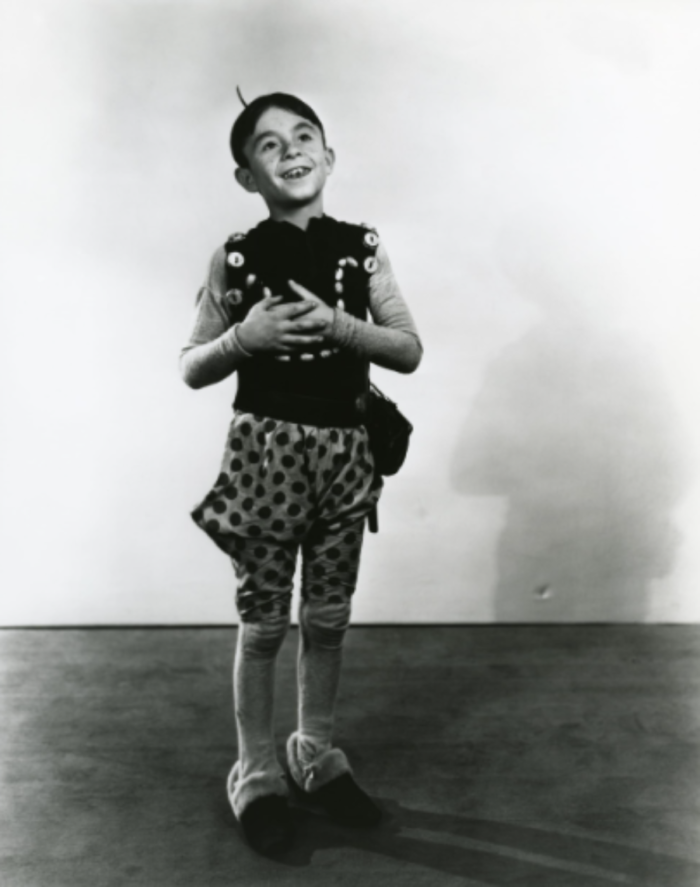
Hal Roach Studios Switzer in Pay As You Exit (1936).
Carl Dean Switzer was born on Aug. 7, 1927, in Paris, Illinois to parents Gladys Carrie Shanks and George Frederick “Fred” Switzer. Switzer was the youngest of four children and he and his older brother Harold, with whom he was very close, soon made a name for themselves in their small town.
The boys could sing and play musical instruments, and frequently performed at public events in Paris. Then, they got the chance to perform for an even bigger audience during a family trip to California in 1934.
While in California, the Switzer boys decided to try and audition for Our Gang, a series of beloved comedic shorts which had begun in 1922. After visiting Hal Roach Studios, they caught the eye of Our Gang producer Hal Roach himself by singing loudly in the studio cafeteria. Impressed, Roach agreed to hire Harold, then eight, and Carl, then six, to appear on Our Gang.
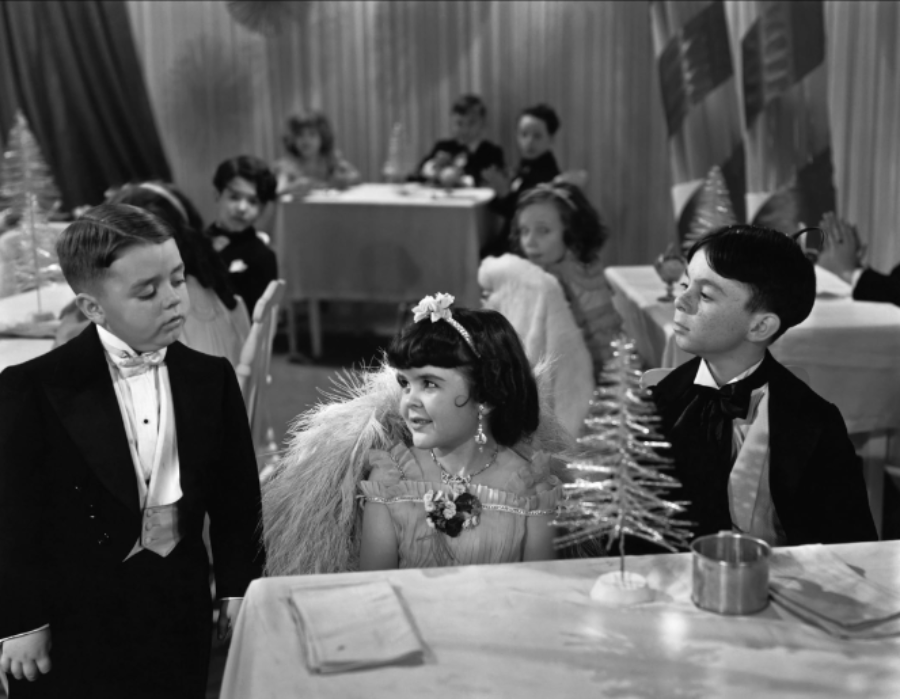
Public DomainCarl Switzer (right) in Our Gang Follies of 1938.
While Harold Switzer took on the role of “Slim,” a background player, Carl Switzer was tapped for the iconic role of “Alfalfa,” the love-struck kid who pined after his love interest, Darla Hood.
Appearing in Our Gang’s 1935 short Beginner’s Luck, Switzer impressed audiences with his performance. Despite being a talented singer, Switzer was told to sing off-key as part of the comedic nature of his character.
This launched his career, and Carl Switzer became one of the biggest child stars of the 1930s. But like all child stars, he would soon start to grow up.
The Struggles Of An Ex-Child Star In Hollywood
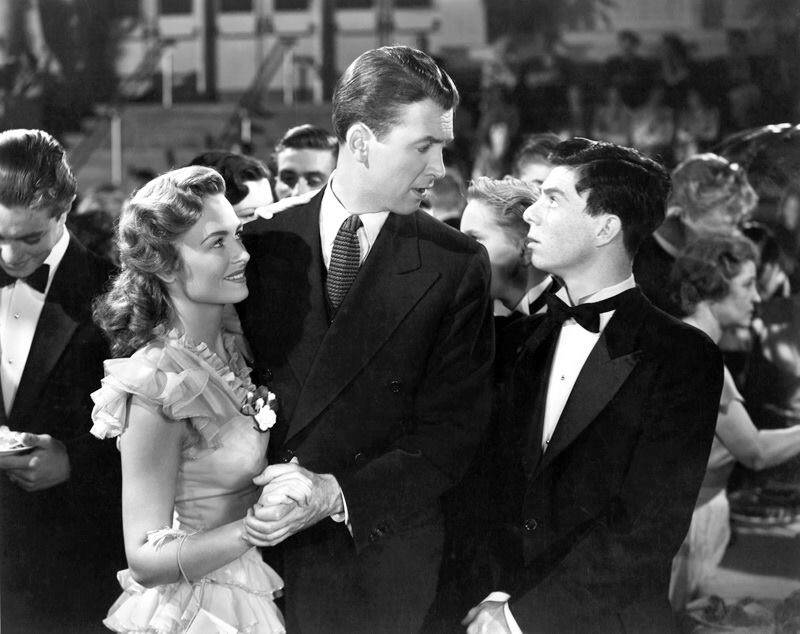
It’s A Wonderful Life Museum/FacebookCarl Switzer, right, in It’s A Wonderful Life alongside Jimmy Stewart and Donna Reed.
After appearing in 61 Our Gang shorts from 1935 to 1940, Carl Switzer left the series. He was 12 years old, too old to keep playing Alfalfa, and he instead started looking for roles in movies. He subsequently found supporting roles in films like Johnny Doughboy (1942), Going My Way (1944), and It’s a Wonderful Life (1946). But Switzer struggled to grow his career.
Typecast as the squeaky, off-key Alfalfa, Carl Switzer failed to book serious acting gigs. Downplaying his time on Our Gang, he pivoted instead toward television, and made appearances on The Roy Rogers Show, The George Burns and Gracie Allen Show, and Science Fiction Theatre.
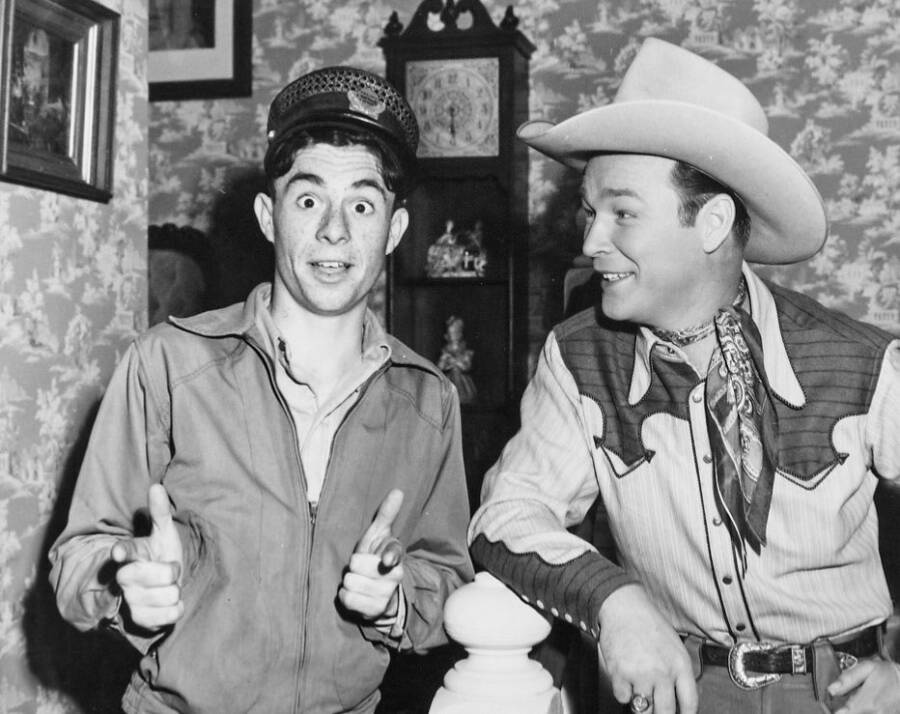
Roy Rogers Productions Carl Switzer on The Roy Rogers Show (1952).
But it wasn’t enough to pay the bills. Switzer thus also expanded to other ventures, including bartending and becoming a hunting and fishing guide. He also bred and trained dogs, and his clients were people, including some celebrities, looking for dogs they could take on hunting trips.
Meanwhile, Switzer married Diantha Collingwood, a grain heiress, in 1954. The couple had one child: a son named Justin Lance Collingwood Switzer. But their marriage was short-lived. In 1957, Switzer and Collingwood divorced.
In the aftermath, his money problems continued. Switzer was even arrested in December 1958 for illegally cutting down 15 pine trees in the Sequoia National Forest to sell them as Christmas trees. For the crime, Switzer received one-year probation and was hit with a $225 fine ($2,430 today).
Between 1953 and 1958, Switzer also co-starred in several films, including his last picture: The Defiant Ones. But sadly, Carl Switzer didn’t live long enough to see if this was the start of his Hollywood renaissance. In 1959, a squabble over a dog would end Switzer’s acting career — and his life.
Carl Switzer’s Death At The Hands Of Moses “Bud” Stiltz
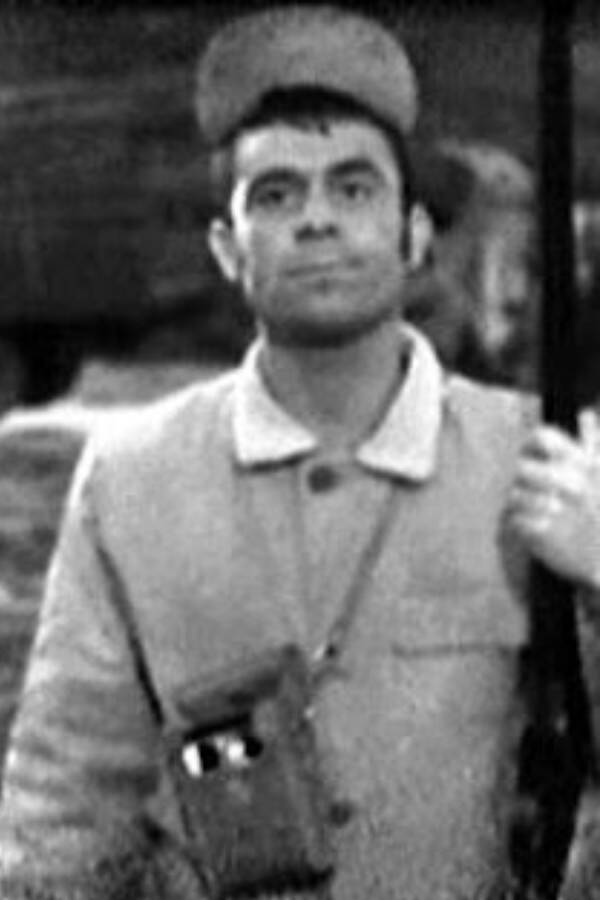
United ArtistsCarl Switzer in his final role, a bit part in The Defiant Ones (1958).
In early 1959, Carl Switzer fatefully brought a Treeing Walker Coonhound that belonged to Moses Samuel “Bud” Stiltz on a hunting trip with him. According to authors Burt Kearns and Jeff Abraham, who wrote The Show Won’t Go On: The Most Shocking, Bizarre, and Historic Deaths of Performers Onstage, the dog ran off during the trip. It was found by a rancher, who demanded $50 for the dog’s return. But Stiltz demanded that Switzer pay the fee.
“You lost the dog,” Stiltz snapped, according to reporting by Kearns and Abraham. “You pay the damn reward.”
Switzer agreed to pay the fee. But he also stewed about the lost $50 (more than $500 today). Just months earlier, after all, he’d resorted to trying to sell Christmas trees — which had only deepened his money problems. So Carl Switzer decided to confront Stiltz and get his money back.
On Jan. 21, 1959, Carl Switzer and his friend Jack Piott went to Stiltz’s home at 10400 Columbus Avenue in Mission Hills, California to demand repayment.

Barry King / Alamy Stock PhotoThe home of Moses ‘Bud’ Stiltz Home where actor Carl ‘Alfalfa’ Switzer was shot and killed.
What happened next is disputed, but police reports later recounted that Switzer banged on the door and demanded that Stiltz repay him. He and Piott forced their way inside and fought with Stiltz — at one point, Switzer even picked up a glass clock and hit Stiltz in the head with it.
In the struggle, Stiltz managed to grab his .38-caliber revolver. And when Carl Switzer drew a knife and threatened him again, Stiltz fired — fatally wounding Switzer, who died shortly afterward at the age of 31.
In the aftermath, Stiltz stuck with his story. He said he had been “forced to shoot” Switzer, and a jury agreed, finding that Stiltz had acted in self-defense.
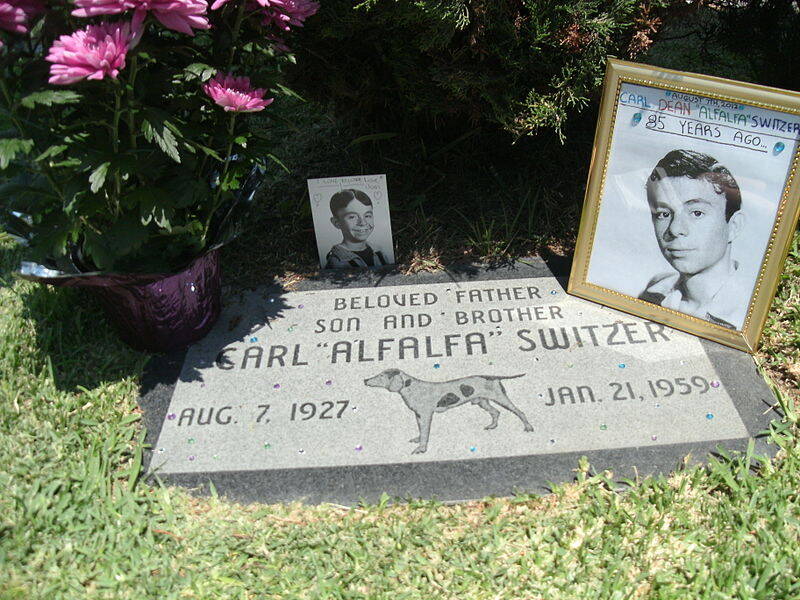
Leavecdsalone / CC BY-SA 3.0Carl Switzer’s grave at the Hollywood Forever Cemetery.
However, another version of the story has emerged in the decades since. Tommy Corrigan, Stiltz’s stepson, was 14 years old when Carl Switzer died. And he remembers things a bit differently.
“It was more like murder,” Corrigan told reporters in January 2001. He claimed that Switzer only had a penknife, and that he was retreating from the scene when Stiltz shot him. “[Stiltz] didn’t have to kill him,” Corrigan said.
It was a tragic end to what had seemed like a promising life. Carl Switzer was subsequently interred at the Hollywood Forever Cemetery in Hollywood, California. Today, he is remembered as a promising child star of the 1930s and 1940s who, like so many, tragically died too soon.
After reading about the life and death of Carl Switzer, dive into the true story of Poltergeist child actor Heather O’Rourke’s death. Then, read about the shocking mystery of Natalie Wood’s death on a yacht.





